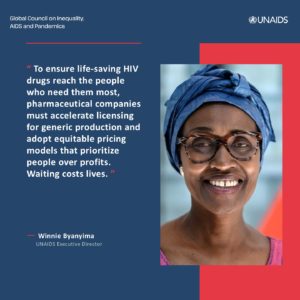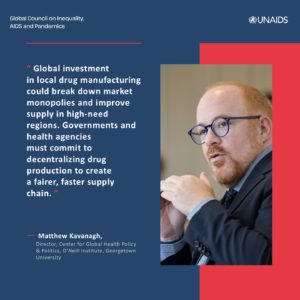Long-Acting HIV Medicines and the Pandemic Inequality Cycle — Rethinking Access
Winnie Byanyima, Linda-Gail Bekker and Matthew Kavanagh Joint United Nations Program on HIV/AIDS (W.B.); Desmond Tutu HIV Centre, University of Cape Town (L.-G.B.); the Center for Global Health Policy and Politics, Georgetown University (M.M.K.)The world may look back on 2024 as a pivotal time in the fight against AIDS — the start of a revolution in the global biomedical response to HIV using long-acting antiretroviral medicines. These new drugs are the closest thing to a vaccine that the world has today, and they could support long and healthy lives for people living with HIV. Whether for adolescent girls in Nairobi or men who have sex with men in Manila, for people who inject drugs in Kiev or sex workers in São Paulo, for the millions of migrants on the move worldwide or people facing precarious employment or housing, the option of receiving HIV treatment or preventive interventions just a few times a year could be game changing.
Learn More

